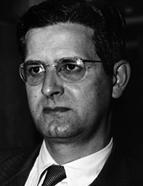

The trips he made in 1941 to the interior of Minas Gerais, to the cities of the old mining areas, allowed him to see and record scenes from a past that, although not so remote, were enlightening about the functioning of the economic, social, and political order in the colony and empire of Brazil. Such scenes encompassed the urban and rural landscapes, the ethnic composition of the population, roads, working techniques, buildings, transport, food, equipment and utensils, cultural values, and everyday behaviours, residual or disappearing in areas as recently and rapidly urbanised as the cities of Rio de Janeiro and São Paulo. Caio Prado Júnior turned the photographic record into a research and documentation tool in his activities, perpetuated in various albums he organised about his work trips and field observations. Recent editions of his books have made it possible to access part of this documentation, with the reproduction of sets of photographs he took at different times during his professional career. Travel books, political diaries, collections of newspaper and magazine clippings completed the database of data and information—meticulously collected, ordered, and stored to support analyses in books and articles, arguments in conferences and interviews, and to sharpen the imagination in interpreting and proposing concrete solutions to national problems and conflicts. The book was reissued in 1946 and again in 1953, with the addition of nine essays on themes related to the title: Evolução política do Brasil e outros estudos [Brazil's political evolution and other studies]. The political dispute revolved around the nationalist nature of the economy and popular mobilisation in the campaign for a state oil monopoly and the creation of the energy companies Petrobrás and Eletrobrás during the second Vargas government (1951-1954). The book reappeared with an intention of contestation and social transformation, free from foreign capital and geared towards the needs of the autonomous development of the country. These will be the hallmarks of the author's political thought and action. He published his first travelogue, URSS, um novo mundo [USSR, a new world], in 1934. The book was the subject of conferences and debates and quickly reached a second edition, which was banned and seized by the police in 1935. In the 1940s and 1960s he wrote other commentaries on trips to socialist countries in Europe, Cuba, and China.
This work is financed by national funds through FCT - Foundation for Science and Technology, I.P, in the scope of the projects UIDB/04311/2020 and UIDP/04311/2020.
